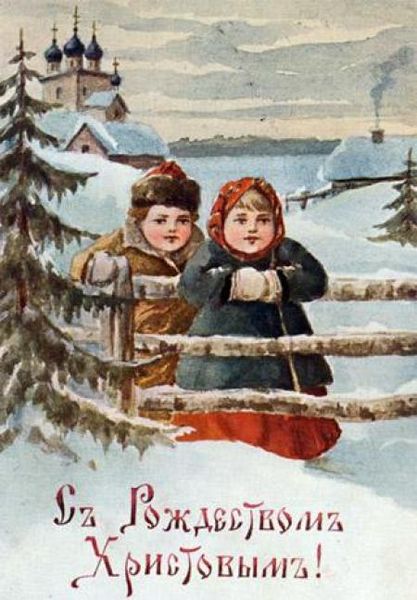What does Russian Christmas have to do with Time Travel?
 |
|
|
Before 1582, most of the world was using the Julian calendar created in the days of the Roman Emperor Julius Caesar. In February, 1582, the papacy of Pope Gregory XIII made an adjustment, or correction of the Julian calendar which required that several days be removed from the calendar for that year alone, and then everything would go along, more or less, as before. Catholic and Protestant nations were quick to adopt the change, whereas Eastern Orthodox countries remained “several days behind,” meaning that Christmas, and most other holidays came at different times in different lands. Today, the Russian Orthodox Church still uses the unchanged Julian calendar to mark the dates of holidays; whereas the government of Russia uses the Gregorian calendar to be coordinated with the rest of the world. But, almost one hundred years ago things were quite different.
Did you know that up until 1918 anyone traveling between Russia and most of the rest of the world would seemingly travel back and forth through time? It was a strange fact that upon entering Imperial Russia the traveler would “relive” the calendar dates of the prior 12 days that they spent outside of Russia, and the Russian going abroad would have to adjust their calendar to reflect the ‘loss” of 12 days. For example, if a Russian would leave Moscow on December 1, 1899 and travel for 12 days to London, he would find that he has arrived just in time for Christmas Day, December 25. He traveled for just 12 days but the calendar in London declares that 24 days have elapsed. Curiously, if he immediately turns around and returns to Russia in 12 days he will be in time to celebrate Christmas in Moscow, on December 25! He could celebrate two Christmas Days because Londoners were using the new style calendar, while Moscovites were using the old style calendar.
All this being said, what’s most important to understand is that Christmas Day in Russia is a celebration of the nativity of our Savior, Jesus Christ, with beautiful and sacred, age-old customs and traditions, just as it is in every other part of the world. But, in Russia and in Russian Orthodox homes everywhere, it just comes a bit later. |
